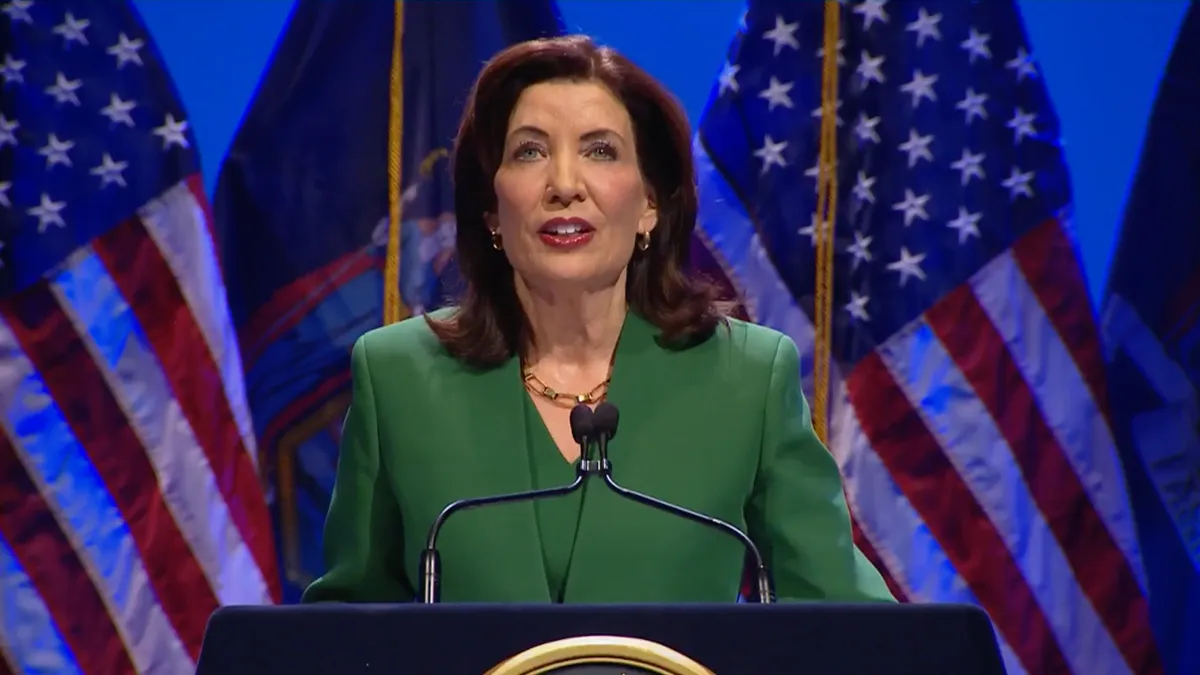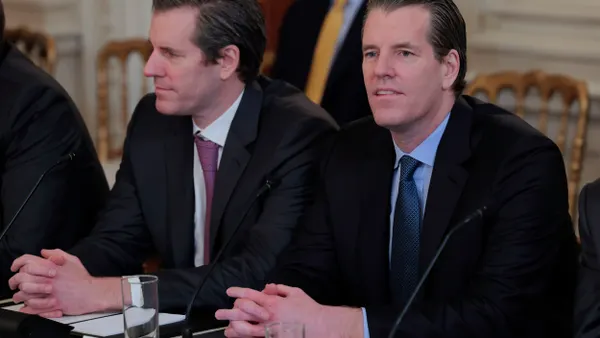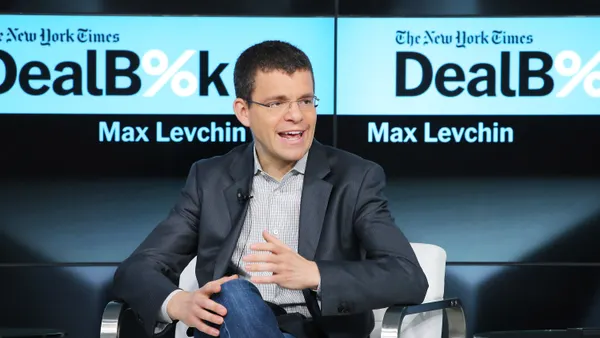Fintech trade groups are pressuring New York officials to change buy now, pay later regulations which were implemented earlier this month, arguing that the rules are not appropriate for the buy now, pay later providers.
As of earlier this month, the state requires buy now, pay later companies to disclose interest rates and fees upfront and develop a framework for returns and disputes. The New York Department of Financial Services has been directed to implement a licensing and supervision regime for BNPL loans. The provisions were included in the state budget Gov. Kathy Hochul signed into law May 9.
While consumer advocates generally favor the regulations, organizations like the Financial Technology Association contend New York’s rules must change.
At issue is the disclosure requirement for interest rates and fees, which shoehorn BNPL into the same category as credit cards, said Miranda Margowsky, a spokesperson for the Financial Technology Association.
“The legislation has a fundamental misunderstanding of buy now, pay later products,” she said.
Buy now, pay later payments companies are different from credit card networks because they don't charge interest on all of their products, Margowsky said in an interview Tuesday. That makes the interest rate reporting requirements moot, she said.
“We want to continue working with the New York legislature to address the shortcomings of this bill,” she said.
The American Fintech Council is also lobbying the state government to change New York's standards, that organization said in a May 12 statement.
“Responsible BNPL products are fundamentally different credit products that provide important options for New Yorkers,” the council said. The group also seeks to work with state lawmakers and regulators “to develop consistent regulatory standards that ensure New Yorkers can continue to access responsible financial products," according to its statement.
In response to questions from Payments Dive, a spokesperson for Gov. Hochul sent a statement that did not address trade groups' efforts to change the law.
"Many consumers are turning to BNPL loans as a low-cost alternative to traditional credit products," the statement said. "These consumers tend to have lower credit scores and savings, making them vulnerable to financially exploitative products and services."
If BNPL transactions carry interest rates, consumers should know upfront what those rates are, said Chuck Bell, a financial policy advocate for Consumer Reports.
“They tell you all that right now in fine print,” he said. “It's possible that some consumers are missing that detail.”
The industry's objection to being regulated like credit cards boils down to semantics, said Adam Rust, director of financial services for the Consumer Federation of America.
"Buy now, pay later functions like a credit card, they should be willing to be subject to the same rules as credit cards," he said. “People use them for the same purpose, they're offered at the same point in checkout carts, and it allows you to buy something and pay over time. There's very little reason to think splitting hairs between two products as similar as these justifies completely separate regulations.”
State-level oversight of the buy now, pay later industry is even more important after the Consumer Financial Protection Bureau said in March that it would spike an interpretive rule treating BNPL purchases like credit card transactions, said Lauren Saunders, an associate director for the National Consumer Law Center.
“In an ideal world, we would have strong consumer protections at the federal level,” she said. “But when the CFPB is going in the opposite direction, states have to step in.”













